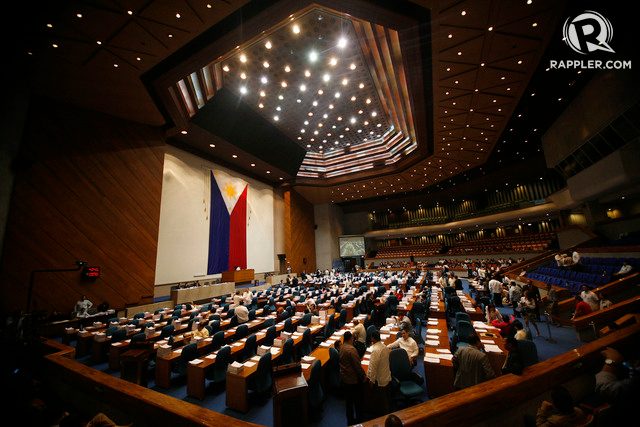SUMMARY
This is AI generated summarization, which may have errors. For context, always refer to the full article.

MANILA, Philippines – In the federal constitution being drafted by the Consultative Committee (Con-Com), Congress may demand from the president documents and information on foreign loans being negotiated by the executive.
Con-Com members agreed on Tuesday, May 22, to include such a provision in the draft charter, they announced on Wednesday during a press conference.
The proposed provision, to be found in Section 20 of the Article on the Executive Department, reads:
“When requested by Congress, the President shall submit to the Senate or the House of Representatives, or any of its committees, all documents and papers relative to such foreign loans.”
Con-Com member and former justice Antonio Nachura said they decided to give Congress this power because Congress, as the body that deliberates on the government’s budget, needs to be informed about agreements that would require spending in the future.
“It’s really to acknowledge that it is Congress that has the power of the purse…When the president enters into a foreign loan, that will of course demand repayment through the use of money of the Philippine government, thus it is for Congress to determine,” said Nachura.
Congress can ask for the files while the loan is being negotiated by the Philippine government and foreign entity.
“When there is negotiation for such a loan and Congress may ask, ‘Mr President, can we look at these documents? Why the need for this?'” said Nachura.
In the current constitution, there is no such provision. However, Congress may call inquiries into foreign loans already obtained or the status of foreign-funded projects.
In both the Con-Com’s proposed charter and the 1987 Constitution, there is a provision requiring the Monetary Board to submit to Congress within 30 days from the end of every quarter a complete report of its decisions on applications for loans to be contracted or guaranteed by the government which would have the effect of increasing foreign debt.
Observers, critics, and some economists have warned against President Rodrigo Duterte’s policy of accepting loans from China.
Some have pointed to China’s supposed “debt-trap diplomacy” in which the Asian giant offers loans to developing countries which the countries end up being unable to pay. The countries are then forced to give China access to their natural resources and strategic assets. – Rappler.com
Add a comment
How does this make you feel?
There are no comments yet. Add your comment to start the conversation.